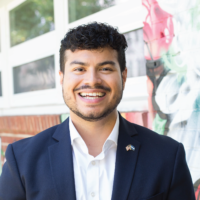January 26, 2023
Governor’s Budget Heavy on Corporate Tax Cuts, Light on Community Investments
Budget proposals are the clearest expressions of our priorities and values. This year, given Virginia’s stronger-than-expected recovery from the pandemic, lawmakers have an opportunity to lift up working families and invest in a better future. Yet Governor Youngkin’s proposed changes to the 2022-2024 budget, which were issued in December 2022, primarily benefit high-income families and profitable corporations, while leaving essential government services — including strong public schools — deeply underfunded. To illustrate the point, consider that the governor has proposed spending hundreds of millions of dollars on expensive tax cuts that would leave many families paying a higher tax rate than profitable corporations.
The needs of families should come first in Virginia’s budget, especially in a time of rising costs that have made it harder to make ends meet. The General Assembly should keep that principle in mind as it considers the governor’s proposals and puts forward its own ideas. Given the short legislative session in 2023, finalizing the budget amendments is among the most important things the General Assembly must do.
Below is a summary of key initiatives in the areas of:
Tax Policy
Virginia’s tax code is critical to raising the resources needed for our communities. Virginia’s tax code is also upside-down. When it comes to state and local taxes, the highest income residents pay a lower portion of their incomes on taxes compared to lower-income residents. Rather than making sure the wealthy and corporations pay their fair share, Gov. Youngkin’s proposed budget amendments would forfeit over a billion dollars in shared resources through tax cuts in this budget cycle alone. Included are proposed changes to individual income tax and business taxes that will erode resources for essential services in the years to come, while also failing to address the upside-down tax code in Virginia.
Corporate and Business Taxes: The centerpiece of the governor’s budget proposal is $500 million in tax cuts that will go to profitable businesses and corporations. A large portion of the cut will go to reducing the corporate income tax rate from 6% to 5% ($362 million). Effectively corporations would have a lower tax rate than the 5.75% top tax rate on personal income paid by 86% of filers in the state. In other words, if enacted, many families would face a higher tax rate than many corporations, even as corporate profits are near all-time highs. This tax cut would largely benefit a small subset of high-income corporations. In 2021, more than two-thirds (68%) of all corporate income tax revenue collected by Virginia was paid by a small number of large, profitable corporations that reported over $10 million in corporate income in Virginia. These large corporations are just 0.4% of all corporations that filed tax returns in Virginia, yet would get most of the benefit from a cut to the corporate tax rate.
Virginia initiating a 10% qualified business income (QBI) deduction ($162.1 million) is another substantial tax cut for profitable businesses, which will mostly benefit high-income individuals. This allows business profits that are passed through to individual income tax returns to receive an additional 10% deduction on that income, a privilege that families whose income comes from wages and salaries would not have. The proposed 10% QBI deduction is half of the 20% federal QBI, the benefit of which mostly goes to higher income households. In 2020, returns where a household earned $200,000 or more claimed 70% of the amount of the federal benefit taken in the state, despite making up about a quarter of QBI claims.
Changes to Individual Income Tax: Virginia’s top tax bracket kicks in at income over $17,000, so the average starting teacher making just over $42,000 has the same top income tax rate as a millionaire. There are, however, ways to make the tax code in Virginia more fair: establishing new revenue streams through tax brackets that ensure the wealthiest in the state pay their fair share and investing new sustainable revenues in targeted support for families with low and moderate incomes, like the Earned Income Tax Credit and a commonwealth kids credit. However, the governor is proposing to decrease Virginia’s top individual income tax bracket, from 5.75% to 5.50% ($333.3 million). Since high-income earners benefit the most from top rate income tax reductions, this makes the state tax code less fair.
In the 2022 session, policymakers increased the standard deduction from $4,500 for single filers and $9,000 for joint filers to $8,000 and $16,000, respectively. While standard deductions can help reduce taxes paid by middle- and lower-income households, it leaves out many low-income filers with low tax liabilities. As shown by the 2022 budget, pairing a standard deduction increase with improvement to the state’s Earned Income Tax Credit could help make sure that low-income households are not excluded from the tax conversation by increasing the refundable portion of the credit. However, the governor proposes to increase the state’s standard deduction to $9,000 for single filers and $18,000 for joint filers ($94.9 million) without additional improvement to the state Earned Income Tax Credit.
K-12 and Higher Education
Every Virginia child deserves to have great public schools in their community. Unfortunately, Virginia has not been funding its share of the costs of creating those great schools. While some local cities and counties can afford to make up the difference, many cannot. That means that in low-income communities and those with the students with the highest needs, buildings are crumbling and students are not receiving the support they need to learn and thrive. Meanwhile, across the commonwealth, local schools are losing teachers and other school staff due to high levels of stress and low salaries. Further, not enough young people are willing and able to go into teaching when it means one of the deepest pay penalties in the country.
In the face of this serious need for reinvestment in our public schools, Gov. Youngkin’s budget proposal does almost nothing for students. Out of $4.5 billion in available funds (including the widely-discussed $3.5 billion in available resources for appropriation and an additional $1 billion that would be available if not for the tax changes assumed in the Governor’s budget amendments), the governor’s budget allocates just $24.1 million in funding for ongoing initiatives to improve public K-12 schools. There’s an additional $105.2 million in one-time funding for bonuses for teachers and school staff, but teachers have told us loud and clear: bonuses don’t incentivize them to stay in the field. In fact, the bonus proposed by Youngkin polled the lowest of any incentives in a recent large scale EdWeek survey of interventions that would keep teachers in the field — just 5% said it would be effective. Another $50 million is proposed in additional state funding for initial costs for new schools that would be operated by colleges and universities without necessarily coordinating with local school divisions — including private colleges, according to the interpretation of the Virginia Department of Education.
As with K-12 schools, the governor’s budget amendments propose few significant, ongoing initiatives to strengthen Virginia’s system of public colleges and universities. The most significant new ongoing funding is allocated to increasing the availability of industry-recognized credentials for high school students ($15 million), increasing internships for students at private companies ($5 million), and establishing and expanding career placement centers on community college campuses ($3 million). No increases are proposed for financial aid or to moderate tuition increases through the state paying a higher share of educational costs.
Health Care
Virginia’s choice in 2018 to expand Medicaid has served as a critical safety net for Virginians during the pandemic, and Virginia residents are now significantly less likely to be uninsured than their neighbors in non-expansion states. Now, the commonwealth must adequately plan and resource for upcoming changes to protect our progress in connecting more people to health coverage and take further steps to remove barriers to comprehensive care.
Medicaid/CHIP Savings & Unwinding: At the start of the COVID-19 pandemic, the federal government enacted several policies to increase access to comprehensive health coverage. In particular, people would maintain eligibility for Medicaid until the end of the “continuous coverage” provision included in the 2020 Families First Coronavirus Response Act. This provision along with other federal changes increased federal funding for state Medicaid programs through 2024 and has resulted in hundreds of millions of state general fund savings since 2020. Gov. Youngkin’s proposed budget amendments reflect an additional state savings of $395.3 million due to continued federal funding.
When the continuous coverage provision ends in April 2023, Virginia, like all other states, will need to begin reviewing and redetermining eligibility for all people enrolled in Medicaid, a process referred to as “unwinding.” The Department of Medical Assistance Services (DMAS) and the Department of Social Services (DSS) will need additional resources to conduct outreach, process applications and required forms, and connect those who are no longer eligible to comprehensive health coverage options. Non-general funds ($30 million) were provided to increase DMAS and DSS capacity to redetermine Medicaid/CHIP eligibility.
Getting Medicaid unwinding right is critical to make sure people do not get kicked off of coverage due to administrative issues. Recent national analysis suggests children, Latino, and Black individuals are particularly vulnerable to being disenrolled despite being eligible. In addition, people who have moved, especially those who have faced several changes in mailing address due to housing instability exacerbated by the pandemic-fueled housing market, and people with limited English proficiency may be at greater risk of being kicked off of coverage. Additional funding may be needed to conduct comprehensive outreach efforts to these communities. Failure to connect with these populations will lead to disproportionate coverage loss for these individuals causing an increase of uninsured people in Virginia.
Behavioral Health & key investments to crisis stabilization: Due to years of underinvestment, Virginia’s behavioral health safety net has struggled to meet community mental health and substance use disorder needs exacerbated by the COVID-19 pandemic. Gov. Youngkin’s proposed amendments provide increased funding for crisis receiving centers and crisis stabilization units ($58.3 million), safety and security updates at state mental health facilities ($20.9 million), efforts to reduce admissions to state mental health facilities already at or over capacity ($20 million), mobile crisis units ($20 million), school-based mental health ($15 million), and supervised residential care for individuals with serious mental illness diagnoses ($8 million).
Prioritizing People Over Corporations
Virginia has the resources to make long-needed investments in our families and communities, should policymakers choose to invest them. The House of Delegates and the Senate will soon provide their budget amendment proposals, then begin work on reconciling the differences. Virginia families deserve a final budget agreement that both centers and reflects the needs of everyday families.
Categories:
Budget & Revenue, Education, Health Care

